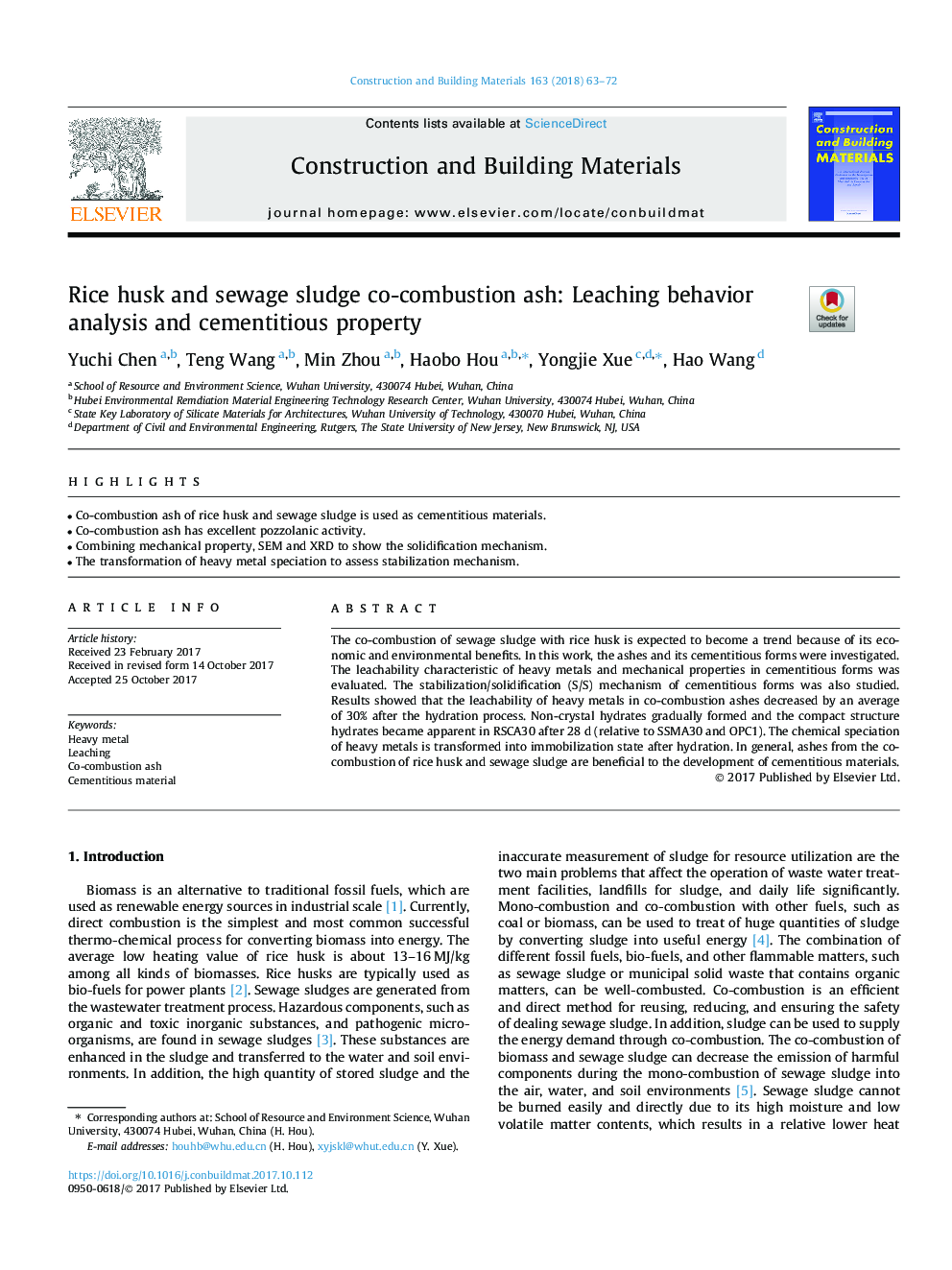| Article ID | Journal | Published Year | Pages | File Type |
|---|---|---|---|---|
| 6716183 | Construction and Building Materials | 2018 | 10 Pages |
Abstract
The co-combustion of sewage sludge with rice husk is expected to become a trend because of its economic and environmental benefits. In this work, the ashes and its cementitious forms were investigated. The leachability characteristic of heavy metals and mechanical properties in cementitious forms was evaluated. The stabilization/solidification (S/S) mechanism of cementitious forms was also studied. Results showed that the leachability of heavy metals in co-combustion ashes decreased by an average of 30% after the hydration process. Non-crystal hydrates gradually formed and the compact structure hydrates became apparent in RSCA30 after 28â¯d (relative to SSMA30 and OPC1). The chemical speciation of heavy metals is transformed into immobilization state after hydration. In general, ashes from the co-combustion of rice husk and sewage sludge are beneficial to the development of cementitious materials.
Related Topics
Physical Sciences and Engineering
Engineering
Civil and Structural Engineering
Authors
Yuchi Chen, Teng Wang, Min Zhou, Haobo Hou, Yongjie Xue, Hao Wang,
